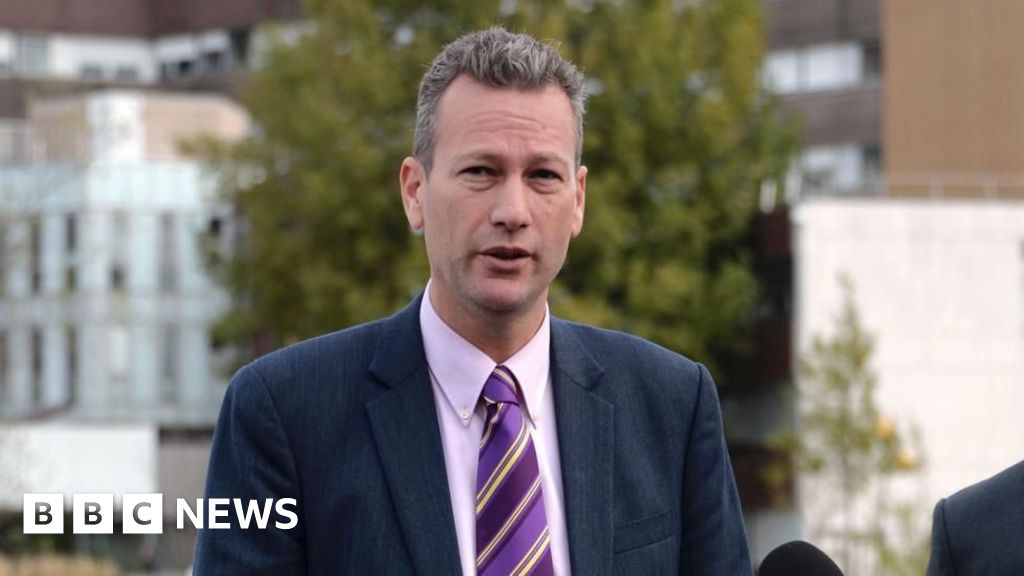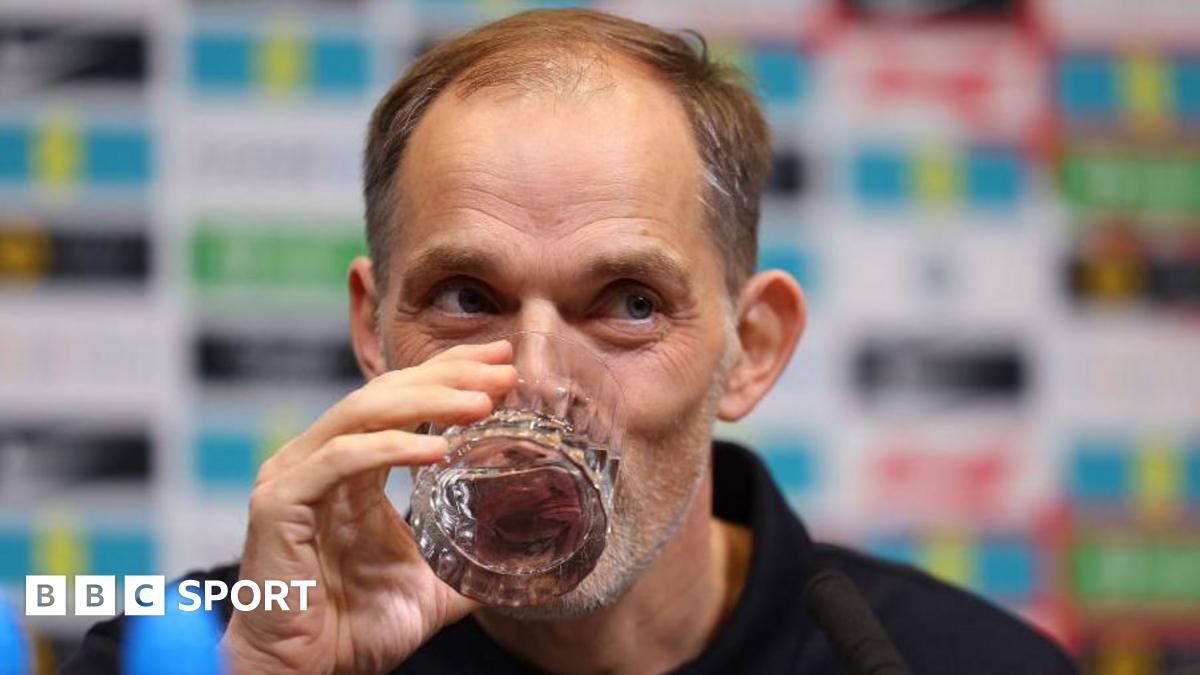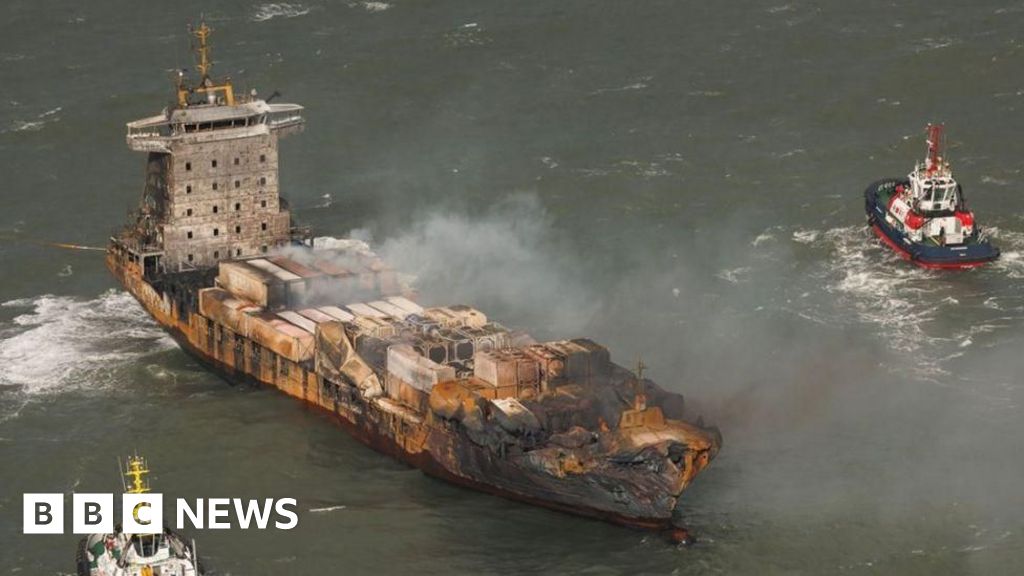
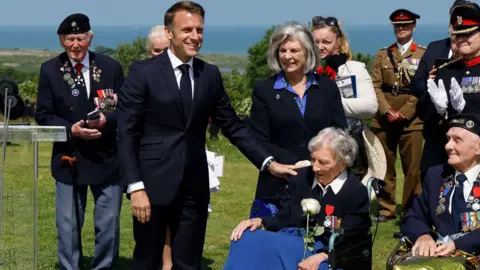 EPA-EFE/REX/Shutterstock
EPA-EFE/REX/Shutterstock
French President Emmanuel Macron presented the award to Christian Lamb
A British naval officer who helped draw up maps for the D-Day invasion has been awarded France's highest honour by President Macron.
Christian Lamb, who is 103 and lives in London, was given the Legion d'honneur at the commemoration event in Ver-sur-Mer, Normandy.
The gathering marks the 80th anniversary of the landings.
Mrs Lamb told the BBC: "I'm just amazed, really, I'm not expecting that sort of thing."

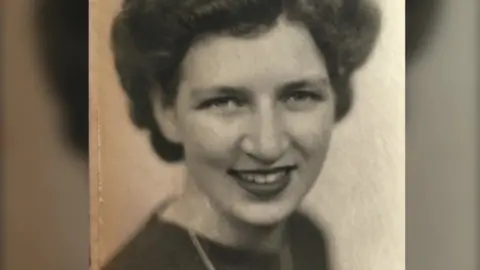
She was posted in secret to Whitehall at the start of 1944 to work on plotting the D-Day landing maps
Christian Lamb came from a naval background, and her father was an admiral.
Just before the beginning of World War Two, she had intended to go to university in Oxford, but when war broke out she changed her plans and joined the Wrens - the Women's Royal Naval Service.
By the age of 20 she had been promoted to "leading wren" and soon became involved in plotting maps for ships involved in the war effort.
She was posted to Belfast when HMS Oribi came into port for repairs.
On board she met Lt John Lamb, and they became engaged to be married after just 10 days.
'You had no idea'
Mrs Lamb recalled how she would be concerned when plotting maps for his ship, worried about his fate at sea.
"You couldn't look far into the future; he might only have had a fortnight's leave and then be killed at the end of it," she explained.
"You had no idea what was going to happen - so if something was there, present, it was there, you did it, whatever."
Her husband survived the war and the couple went on to have a family. Mrs Lamb had to keep her mapping work secret even from him until 40 years later.

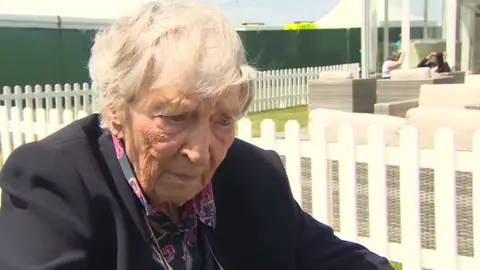
Mrs Lamb has written five books about the war and her passion for botany
As part of the planning for Operation Overlord, Mrs Lamb was stationed in Whitehall, working alone in a basement room.
There she created maps for the landing craft that were central to the amphibious attack.
She worked from large Ordnance Survey maps and captured photos to plot every point, to enable approaching craft to know they were at the correct part of the beach.
She told the BBC: "This was going to be the most amazing, extraordinary, enormous invasion that had ever been in history."
"I had an office just to me, entirely, alone," she said.
"There was an admiral who was giving me orders, and he ordered me to make some maps.
"We had chosen five different places, and each of them was a landing position."

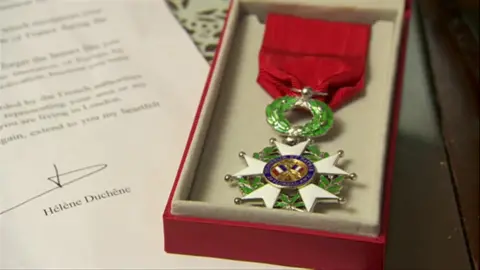
The Legion d'honneur is France's highest order of merit
Looking back, Mrs Lamb said the work was vital to the war - and to changing perceptions about the role women had in society.
"I was very glad to be able to do something useful. It helped a whole generation of people my age. From that moment on, we chose what we did, we didn't have to do what our mothers said."
When asked about the maps she drew more than 80 years ago, Mrs Lamb said: "There will be so many lives lost, but perhaps one or two saved."

 9 months ago
37
9 months ago
37
